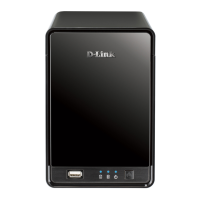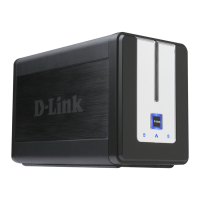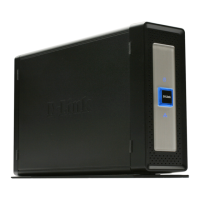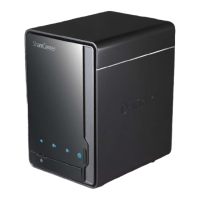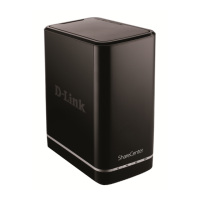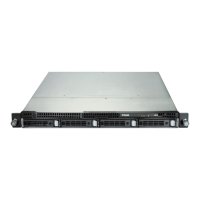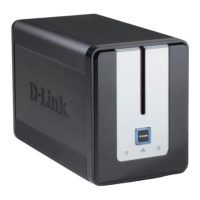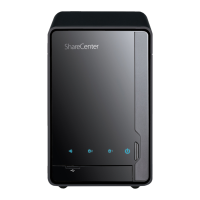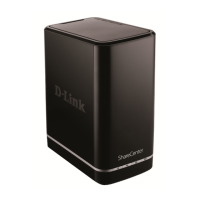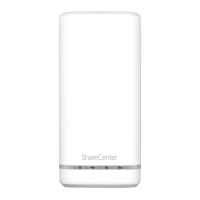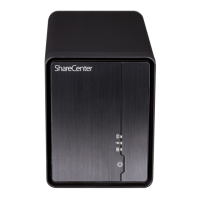102D-Link DNR-322L User Manual
Appendix A - Choose a RAID Level
Choose a RAID Level
There are several issues to consider when choosing the RAID level. The following summarizes some
advantages, disadvantages, and applications for each choice.
RAID 0
Advantages
• Implements a striped disk RAID Volume as the data is broken down into blocks and each block is written
to a separate disk drive
• I/O performance is greatly improved by spreading the I/O load across many channels and drives
• No parity calculation overhead is involved
Disadvantages
• Not a true RAID because it is not fault tolerant
• The failure of just one drive will result in all data in a RAID Volume being lost
• Should not be used in mission critical environments
RAID 1
Advantages
• Simplest RAID storage subsystem design
• Can increase read performance by processing data requests in parallel since the same data resides on
two different drives
Disadvantage
• Very high disk overhead - uses only 50% of total capacity
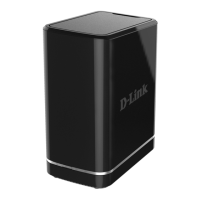
